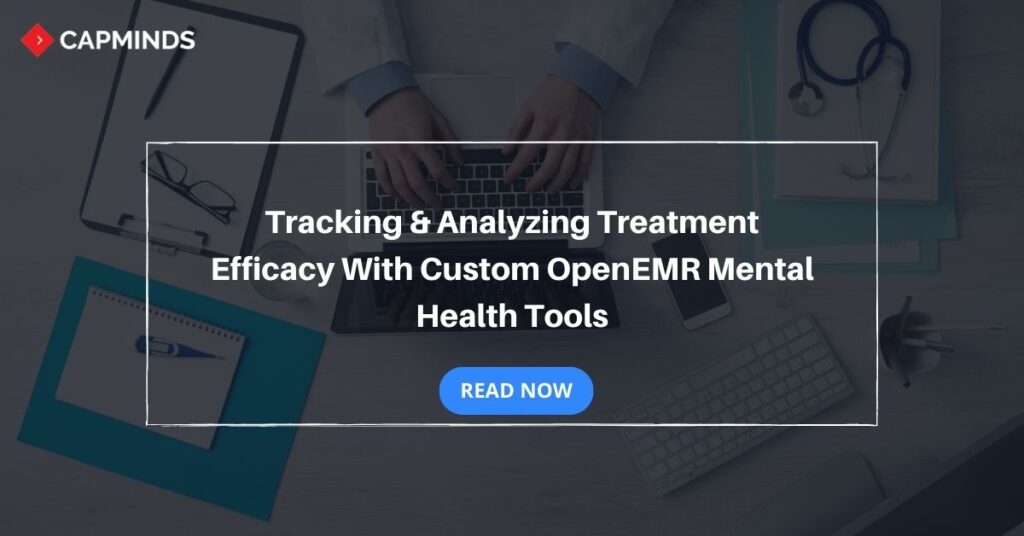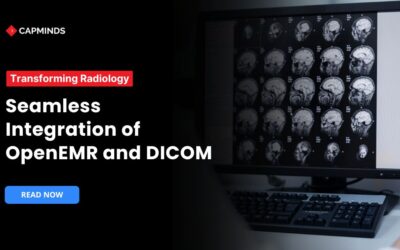Tracking & Analyzing Treatment Efficacy With Custom OpenEMR Mental Health Tools
Mental health providers face inherent challenges in tracking and demonstrating treatment efficacy. Custom OpenEMR tools help overcome barriers with specialized functionality for therapy metrics analysis.
This article will overview the custom tools, issues without them, key benefits driving adoption, and data on patient care impacts – ultimately highlighting why practices should leverage custom mental health tracking.
Related: OpenEMR for Behavioral Health: Your Ultimate Q&A Guide!
Introducing Custom OpenEMR Analytics Solutions
The OpenEMR platform offers open-source medical records functionally with flexibility for customizations. For mental health, key tools include:
- Custom Forms: To standardize symptom and outcome measure reporting from patients via validated scales like PHQ-9 depression scores submitted at baseline and each visit.
- Graphing: Trends symptom scores, therapy durations, and other metrics over time to visually track changes.
- Reporting: Analyzes aggregate data on patient groups by age, condition, treatment plans, and modalities, changes across periods, and more for insights.
- API Integration: Connects with wearables and at-home testing kits to automatically sync patient-submitted data.
Providers can tailor the tools to demonstrate efficacy to regulators, optimize treatment plans, and improve care benchmarking.
Critical Tracking Challenges without Custom Analytics
Without custom mental health tracking, practices face numerous problems including:
- Inability to quantify outcomes throughout treatment using standard objective measures.
- Lack of visibility into the efficacy of specific treatment plans and modalities.
- Insufficient data to support expansion of services and programs to regulators.
- Difficulty benchmarking against industry care standards and optimizing based on trends.
This hinders patient care improvements, operational efficiency, and practice growth.
The Benefits of Adopting Custom OpenEMR Analytics
Implementing customized OpenEMR tools for mental health tracking and analytics delivers:
- Demonstrable improvements in patient outcomes based on symptom score trends, backing expansion applications.
- Data-driven decisions on optimal treatment protocols for each mental health condition.
- Streamlined regulatory reporting with integrated graphing and analysis.
- Enhanced practice reputation with a proven commitment to care quality and benchmarking.
Additionally, reduced administration effort with automated data collection and analytics workflows balances out implementation time and costs.
Driving Better Patient Outcomes
A multi-site mental health service organization saw a 53% increase in depression remission rates and 11% higher reliable clinical improvement after leveraging OpenEMR custom measurement tools. The data was published in BMC Psychiatry supporting healthcare technology investments to enhance outcomes.
Custom OpenEMR tools address specialized mental health analytics needs to unlock better patient care, outcomes benchmarking, practice efficiency, and regulatory compliance. The future of therapy lies in data-driven treatment optimizations rather than subjective assessments alone.
Practices that fail to adopt custom analytics risk falling behind competitors in quality benchmarks. Hence, mental health providers should strongly consider customized OpenEMR tracking implementations to drive continual improvements.
Related: Can large clinics use OpenEMR? [Top 8 challenges & shotgun solutions]
Realize the Full Potential of Your Mental Health Data with CapMinds
As an OpenEMR expert services partner, CapMinds helps mental health practices implement, customize, and fully utilize OpenEMR tools to derive maximum value from patient data. By leveraging CapMinds ‘ experience optimizing OpenEMR for behavioral health tracking, analytics, and reporting needs, you gain expert guidance plus tailored solutions mapped to your workflows.
Trust CapMinds to provide technical capabilities allowing clinicians to deliver superior, evidenced-based mental health care.
Schedule a consultation to realize the future of therapy analytics now




